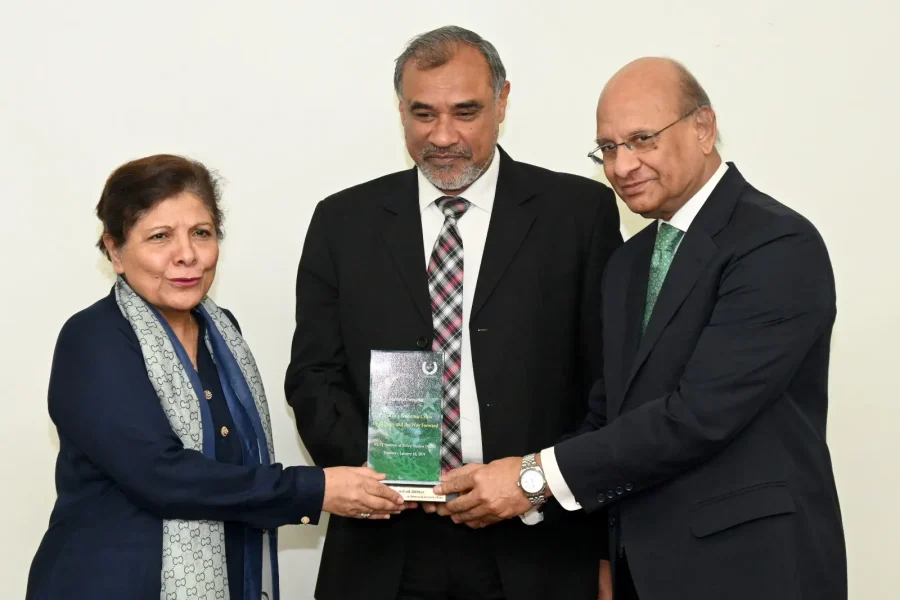Effective implementation of bold and ambitious reforms is imperative to usher in a new era of development and prosperity in the country. The accomplishment of this goal, however, is contingent upon addressing critical underlying institutional, governance, and structural constraints. DrShamshadAkhtar, Caretaker Federal Minister for Finance, Revenue & Economic Affairs, made these remarks during her keynote address at the national seminar on “Pakistan’s Economic Crisis: Challenges and the Way Forward,” organised by NUST Institute of Policy Studies (NIPS) at the university’s main campus.
DrShamshadAkhtar highlighted five key areas that have increased the vulnerability of Pakistan’s economy to domestic and global shocks: first, unsustainable fiscal policy due to revenue gaps and unproductive expenditure; second, fiscal unsustainability has enhanced government recourse to public debt which has increased; third, climate shocks as the global warming model predicts that Pakistan’s weather patterns would become even more volatile and extreme in the decades ahead, with an average increase in temperatures by 1.3% to 4.9% by 2090; fourth, the lack of innovation and diversity in the structure of the economy; and fifth, the failure to integrate Pakistan’s economy with the rest of the world.
DrShamshad further stressed five critical areas of reforms essential to reducing Pakistan’s vulnerabilities and fostering sustainable growth that included: a comprehensive overhaul of the government’s fiscal apparatus necessary to lower the revenue-expenditure gap; addressing structural weaknesses of SOEs and improving their efficiency and functioning, reducing the debt burden; and enhancing competitiveness and encouraging new investments.
During his talk in the second session of the seminar, Mr Muhammad Ali, the Caretaker Federal Minister of Energy, Power & Petroleum, talked about the energy crisis and energy sector reforms in Pakistan. Recognising the interlinked nature of Pakistan’s power and energy challenges, the minister emphasised the need for comprehensive structural reforms as economic activity has collapsed due to import controls, creditworthiness downgrades, and ballooning interest payments. He said that a strategic approach is needed to meet the country’s energy requirements as Pakistan relies heavily on gas and oil as main sources of energy, while industries and transport consume the largest chunk of the energy produced.










